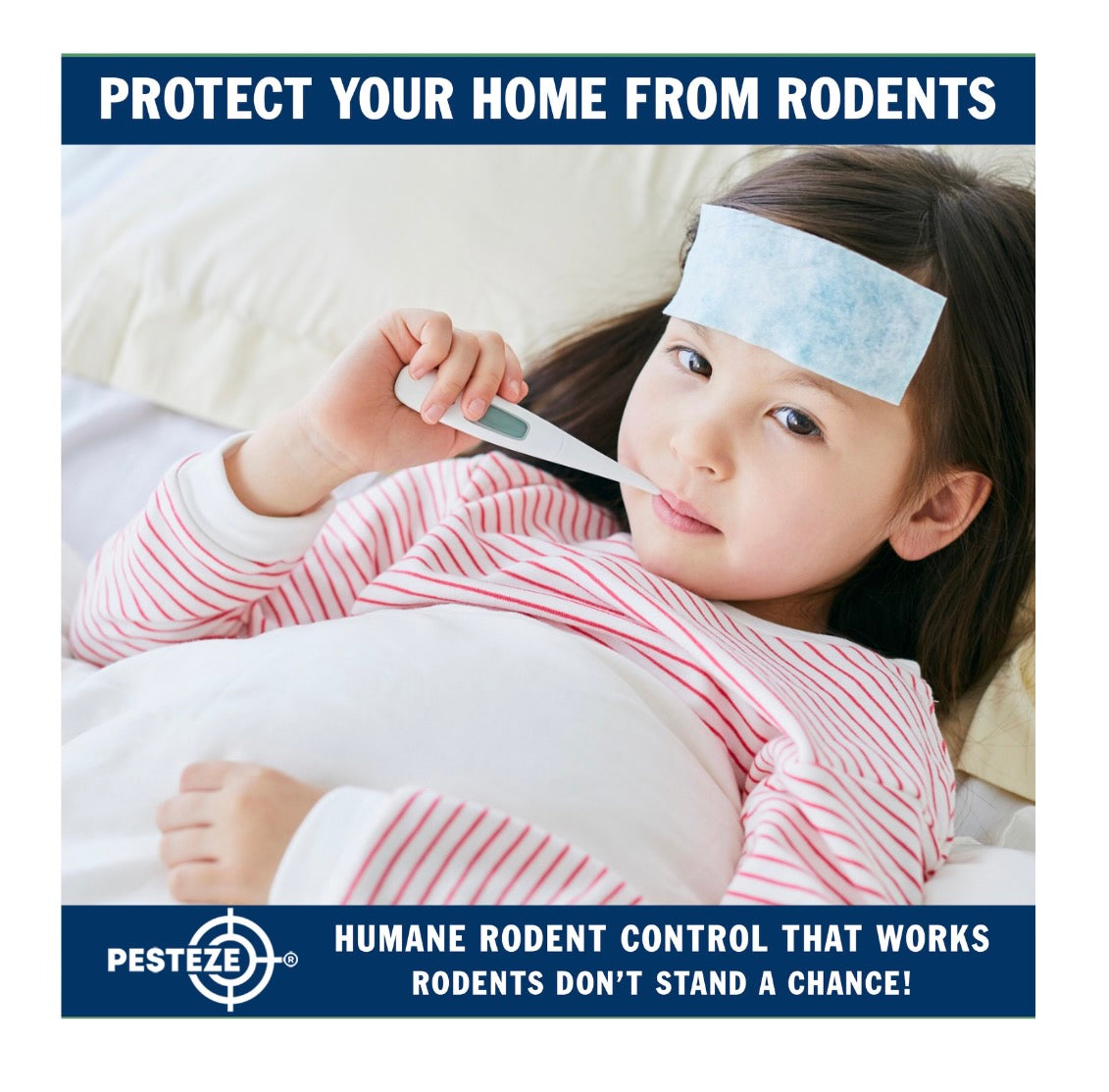CAN RODENTS MAKE YOU SICK? UNDERSTANDING THE HEALTH RISKS

CAN RODENTS MAKE YOU SICK? UNDERSTANDING THE HEALTH RISKS
SUMMARY
Rodents aren't just a nuisance—they're a serious health threat. Mice and rats carry diseases that can spread through droppings, bites, and contaminated food or surfaces. Learn how to protect yourself and your family.
FEATURES
-
Disease Carriers: Rodents spread illnesses like hantavirus, leptospirosis, and salmonella.
-
Contaminated Surfaces: Droppings and urine can infect food and counters.
-
Airborne Risks: Stirring up rodent droppings may release harmful dust particles.
-
Allergic Reactions: Rodent fur and dander can trigger allergies and asthma.
-
Bites and Scratches: Direct contact may lead to rat-bite fever or other infections.
-
Secondary Pests: Fleas and ticks from rodents can spread additional diseases.
DESCRIPTION
Rodents may seem harmless, but they carry a host of pathogens that can seriously impact human health. Whether it's mice nesting in your attic or rats invading your pantry, their presence can expose you and your household to diseases that are often underappreciated or misunderstood.
One of the most well-known health risks associated with rodents is hantavirus, a potentially deadly disease transmitted through contact with rodent urine, droppings, or saliva. Inhaling airborne particles from dried rodent waste is a common method of exposure, especially during cleaning or sweeping in infested areas.
Rodents also spread leptospirosis, a bacterial infection that can cause liver and kidney damage. This disease is commonly transmitted through water or food contaminated with infected rodent urine. Similarly, salmonella bacteria, which can cause severe gastrointestinal illness, are often found in rodent feces and may contaminate food and surfaces in your kitchen.
Another concern is rat-bite fever, which can be contracted through a bite, scratch, or even contact with a dead rodent. Symptoms include fever, rash, and muscle pain, and without treatment, the illness can become serious.
Beyond direct transmission, rodents also carry parasites such as fleas, ticks, and mites, which can infect humans and pets. These secondary pests can introduce additional diseases like Lyme disease or typhus into your home environment.
Even if no diseases are transmitted, rodents can still impact your health by triggering allergies and asthma, particularly in children. Their dander, fur, and waste contribute to poor indoor air quality, exacerbating respiratory conditions.
To reduce your risk, it’s important to address rodent infestations promptly. This includes sealing entry points, keeping food stored securely, maintaining cleanliness, and calling pest control professionals if needed. Proper cleanup methods—using gloves, masks, and disinfectants—are also crucial to avoid stirring up infectious particles.
Understanding the full range of health risks rodents pose can help you take the right steps to protect your home and loved ones.
- Nikita Gulrajani


Comments 0